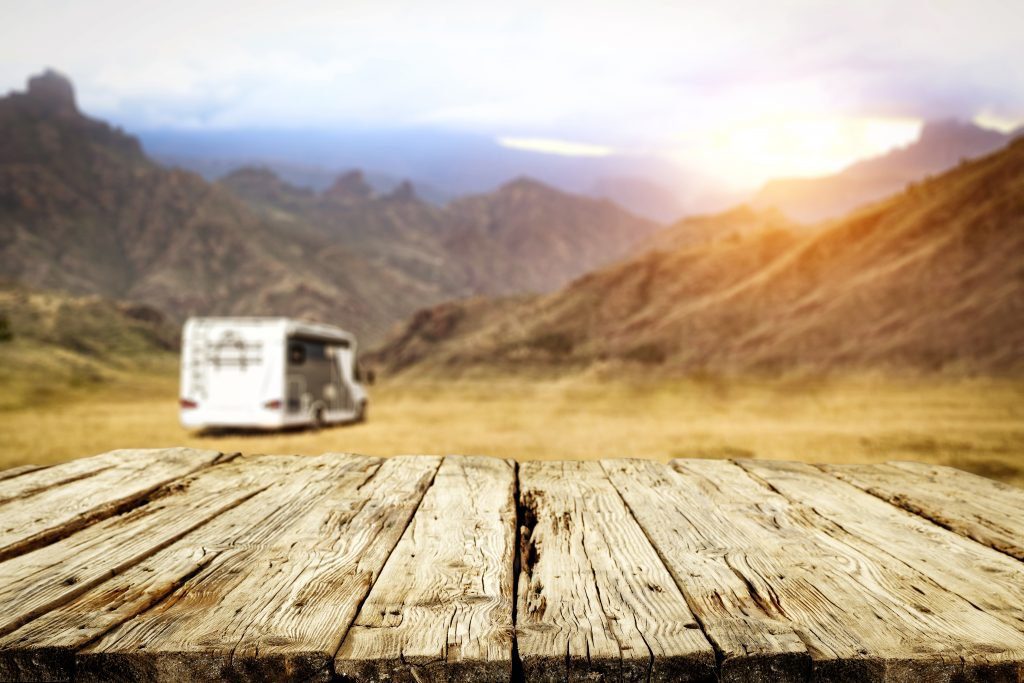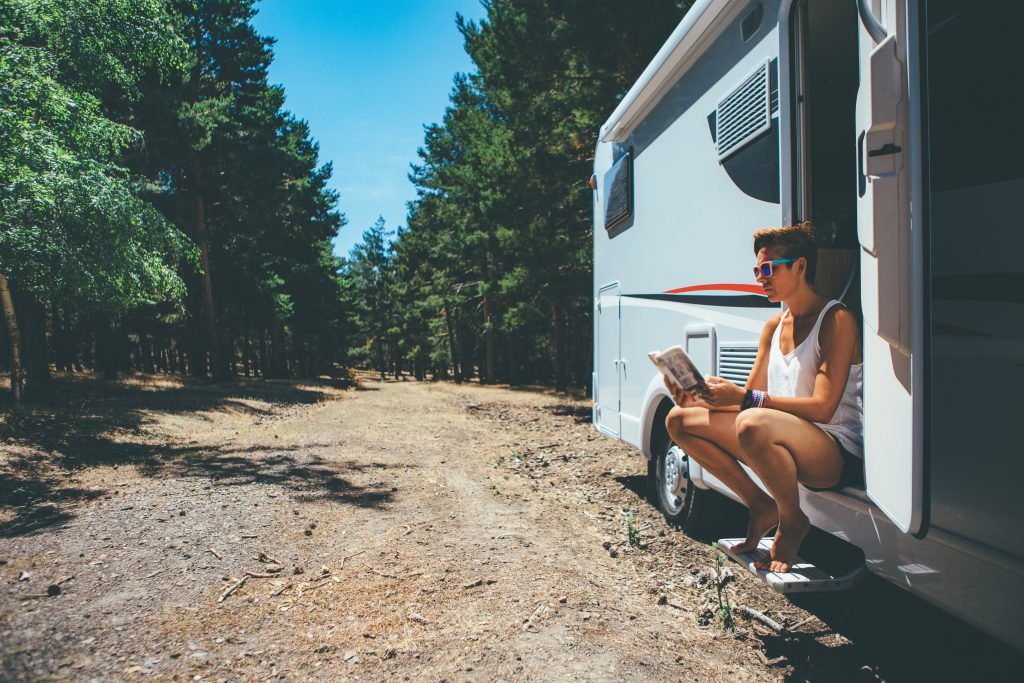Complete Guide To Boondocking In An RV
Want to get away from the crowds this summer? RV boondocking is one of the best ways to experience nature in its truest form.
Start your off the grid adventure with RVnGO’s guide to boondocking in an RV.
What is boondocking?

Boondocking refers to camping in an RV without electric, water, or sewer hookups, outside of campgrounds. Often referred to as “dry camping”, the distinction is that boondocking is truly 100% off the grid, whereas dry camping is often done at state parks. In places like the latter, you’ll have campsites that often feature picnic tables and fire pits, but no electric hookups.
With boondocking, you’re not limited to campgrounds. You can go just about anywhere.
Is boondocking illegal?
On public land, yes— completely! It keeps campgrounds from becoming overrun and generally spreads out the population density during high season for camping.
There are caveats, however. You aren’t free to drive your RV through terrain that’s free of any roads, dirt or otherwise. As long as the clearing that you’re parked in can be accessed directly by road, you’re good to go. Where boondocking gets tricky is the notion that you can’t just drive off and make your own way entirely. If roads can’t get you there one way or another, there’s probably a good reason for that. For your own safety, and that of the environment around you, keep to the pathways made for you, then branch off to camp.
Is RV boondocking safe?
As long as you prepare accordingly and abide by above law, then yes, boondocking in an RV is exactly as safe as you make it.
Further below, we’ve outlined a list of must-have items to bring on your boondocking trip. These items will ensure that you make the most of your excursion and keep it perfectly safe.
If you plan on boondocking in an RV during the winter or in a climate generally much cooler throughout the year, check out this article for a complete guide to winter RV camping and boondocking.
Boondocking in an RV

How long can you boondock in an RV for?
This is going to depend entirely on a few variables.
If you’re a first timer, you should plan for a shorter trip to see how you adapt to it. A long weekend boondocking is a perfect amount of time to determine how you feel about having (or not having) certain luxuries in the wild. Then you can prepare better for a longer stay.
As far as the original question goes— there’s technically no limit on how long you can boondock for. If you pack an appropriate amount of food and water, you could camp for a long time. Many people live entirely off the grid. However, in those cases they’re likely to have electricity from solar or other renewable sources of energy. Assuming your RV rental isn’t solar equipped and you’ll be relying on a generator for energy, how long you camp for depends on how much fuel you have.
What do I need for RV boondocking?
Drinking water and food
Most importantly, you’re going to need to bring a good amount of drinking water (and food) on your trip. Exactly how much is difficult to say, as it varies not only from person to person but in how long you’ll be camping. As a general rule, bring at least 2lbs of food per day and per person. This way, if you’re planning on hiking often during your trip, you’ll make up around 4,000 recovery calories needed.
When it comes to water, boondocking vets often recommend five gallon refillable cannisters. Whether or not you plan on purchasing one, or bringing smaller bottles instead, five gallons is how much water you sure plan on bringing at a minimum in case of emergencies.
Portable generator
Unless you plan on really committing to an off grid dry camping getaway, a portable generator will be necessary to make the most of your RV. If you’re only planning on using electricity for smaller tasks like running a coffee maker in the mornings, a 2000 watt generator should do the trick. However, if you want to keep warm or cool during your trip with the RV’s AC, a 3500 watt or higher generator will do the trick.
Some RVs come equipped with generators already. Fifth wheels often have built-in generators by design, although not all do. Be sure to inquire with the host of your RV rental about generators before you rent.
First aid kit
Although it doesn’t need saying, always bring a suitable first aid kit with you when you go camping. If possible, spring for an emergency survival kit for even more security. Taimasi sells a camping first aid kit for $40 that comes with everything from basic first aid supplies to fishing hooks, folding knives, whistles, compasses, and more in its 152 pieces.
Power banks
Even if you don’t opt for a generator and will be going completely off-grid, you’ll still need to keep your phone charged in case of emergencies. Most portable chargers can keep a phone powered for three battery life cycles on average. Depending on how often you’ll be using your phone (or other devices), you may want to bring at least a couple of fully charged power banks.
Downloaded maps
Having maps and directions downloaded to your phone before you leave doesn’t apply solely to the roads.
In many cases, public trails will have maps available for hikers. Even if you’re camping at a distance from the trails, you should have your entire area roughly mapped out in case you get lost.
Space heater or 12v fans
For first timers in particular, having a portable heater for cooler weather and 12v fans for warmer weather is helpful in gauging what your needs are. Unless you’re camping in the winter, you may not need a space heater at all. However, as the saying goes, it’s far better to have the heater and not need it than to find that nights are much colder than you expected while off the grid. This is particularly relevant if you plan on camping in places like the desert that are known for their frigid temperatures at night.
Eco friendly body cleansing items
Regardless of whether your RV boondocking experience lasts for a weekend or a whole month, dry shampoo will become your new best friend. Both in spray or powder form, a little dry shampoo will go a long way towards keeping your hair from feeling like an oil producing machine.
After a long day of accruing sweat, dirt, and sunscreen all over the body, you’ll want to sufficiently clean off before going to bed. The good news is that there are a number of excellent biodegradable soaps on the market nowadays. They can clean dishes, clothes, and even skin!
Dr. Bronner’s Castile Soap is an incredibly popular and efficient brand for keeping everything clean. Or, if you prefer wipes on your skin, Sea to Summit Wilderness Wipes are a trustworthy brand known for compostable supplies. However, we highly recommend keeping a trash bag with you at your campsite for items like wipes regardless of their biodegradable status. When it comes to nature, it’s always best to leave it exactly as you found it— clean and free of any human contact.